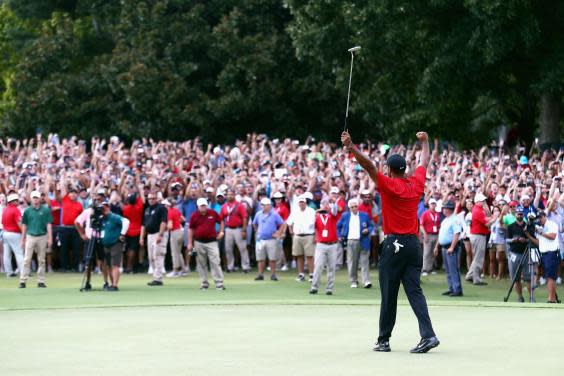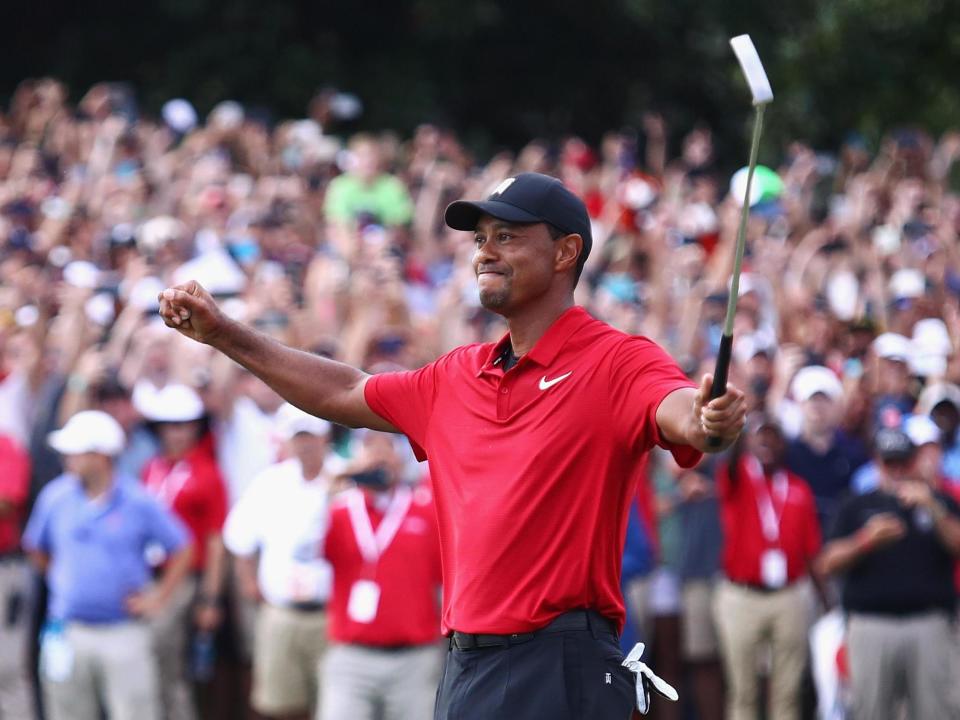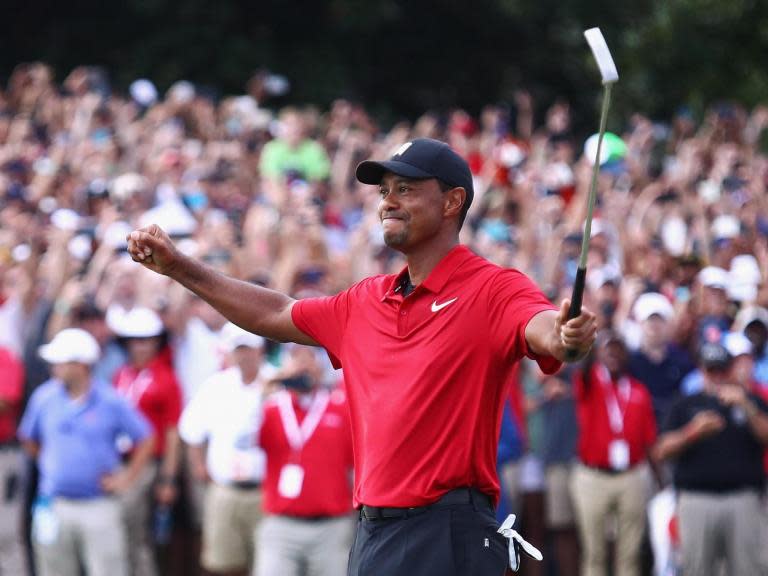Reinvented and resurgent, Tiger Woods can rewrite his own Ryder Cup history
There’s a story about Tiger Woods from before the 2002 Ryder Cup at The Belfry that offers just the merest insight into the particular, peculiar way his mind works. Ahead of the competition, Sky Sports are trying to spice up their usual humdrum pre-tournament interviews with a few quirkier, offbeat questions, to be asked to each of the players in turn. Who’s your messiest team-mate, do you prefer apple pie or cheesecake, that sort of thing. One of the questions is what they would do if they came across a spider in the bath.
Most of the players answer without fuss, in the breezy, offhand spirit in which the question was intended. Woods, on the other hand, ponders the question for a few moments, before narrowing his eyes and fixing his interlocutor with an inquisitive stare.
“Where in the bath is it?” he asks.
That’s Tiger, you see. Clinical. Analytical. Just a little bit… strange. A man who sees the world in terms of puzzles and solutions. It’s the same quality that made him so devastating on a golf course, and so enigmatically flawed off it. It’s hard not to admire Tiger Woods. But god, you wouldn’t want to be him.
READ MORE: Foden may not be Iniesta but Pep Guardiola knows he is special
READ MORE: In the power battle between Pogba and Mourinho, Man Utd will soon be forced to take a side
READ MORE: Gossip: United want £200m for Pogba, Klopp responds to Goetze links
And so, as he arrives in Europe on the back of an outpouring of collective emotion the likes of which golf has not seen since the dog days of Jack Nicklaus, Woods now addresses his next puzzle: how to re-raise yourself for a Ryder Cup after the stunning high of winning your first title in five years. It has, by his own admission, been a wild few days: from the evangelical masses of Atlanta on Sunday night to the Parisian suburbs on Tuesday afternoon, still trying to process the seismic shockwave he has created, both in the sport, and himself.
A couple of minutes after Woods left the press conference room at Le Golf National, Bryson DeChambeau walked in, momentarily flummoxed by the sea of faces before him. “Was Tiger in here?” he joked, as he took his seat. “I’m higher in the world rankings than him, as well.”
For Woods himself, this week presents a very particular challenge. For one thing, there’s replying to all the congratulatory text messages he has received since his victory in the Tour Championship on Sunday night. “I’m still well north of 150,” he admitted. “So it’s going to take me a little bit of time.” But once he has got rid of the little red dot on his phone, he has the job of improving an American team in which, for much of the last two decades, he has been as much a hindrance as a help.
Is it purely a statistical quirk, after all, that America’s two victories this century – at Valhalla in 2008 and Hazeltine in 2016 – have both come with Woods on the sidelines? A decade ago, he was undergoing reconstructive knee surgery. Two years ago, in the midst of the worst slump of his career, he was a non-combatant vice-captain. That’s six defeats out of six since he lifted the trophy at Brookline in 1999. And for much of the past two decades, Woods in many ways encapsulated the divide between the successful Europe and the ailing America: reserved rather than gregarious, individualistic rather than collegiate.

Tiger Woods of the United States celebrates (Getty Images)
Woods offered a story of his own, from his first Ryder Cup at Valderrama in 1997. Playing in the morning foursomes, his playing partner and friend Mark O’Meara suggested that the layout of the course made Woods a better fit to tee off on the odd-numbered holes. “No, I like evens,” Woods replied, secretly dreading hitting the first tee shot. Eventually O’Meara pulled rank and ordered him to tee off first. But the episode encapsulated not just Woods’s own neuroses – and even at the height of his success, he was a far more insecure character than many realised – but the introspective instinct for self-preservation that held him back in this competition for so long.
That, by all accounts, has changed. Perhaps the most poignant part of Woods’s win at East Lake on Sunday night was when he stepped off the 18th green to be greeted with the genuine warmth and elation of his fellow players: DeChambeau, Justin Thomas and Rickie Fowler were all there to celebrate with him. These days, Woods is far more approachable – a far more likeable – figure on tour. Since his vice-captaincy stint in 2016, and his rapprochement with Phil Mickelson a couple of years earlier, Woods has reinvented himself as a team man. The time when US captains would hem and fret over how they were going to manage Woods during Ryder Cup week has passed. Now all the worrying is done by the opposition.
For a decade or more, team spirit was what set Europe apart. America frequently brought the more talented golfers, but somehow successive European teams managed to gird themselves into something more than the sum of their parts. That advantage has now gone. And Woods has been a big part of that: using his status and experience as assets rather than bargaining chips, turning his analytical mind to the team, the course, and Europe’s weaknesses.
All of which brings us back to that 2002 interview, and the spider in the bath. “Where in the bath is it?” Woods inquires. Not having expected a follow-up question, the Sky interviewer is momentarily flustered, before thinking on his feet and and replying that the spider is near the plughole.
“Oh,” Tiger replies immediately, the solution presenting itself in an instant. “Then it’s going down.”



